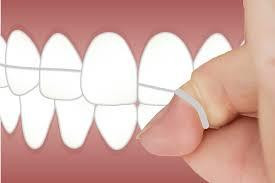Blog Information
- Posted By : Harry Diaz
- Posted On : Feb 11, 2022
- Views : 277
- Category : General
- Description : If you’ve had a root canal done, don’t forget to keep it in good condition through proper aftercare! Your dentist will be able to recommend the best way to clean and maintain your tooth after this procedure, but it’s important to follow their advice in order to avoid permanent damage.
Overview
If you’ve had a root canal done, don’t forget to keep it in good condition through proper aftercare! Your dentist will be able to recommend the best way to clean and maintain your tooth after this procedure, but it’s important to follow their advice in order to avoid permanent damage. This helpful guide on how to properly care for a root canal explains why it’s so important, and offers some specific recommendations on what you can do at home or what your dentist can do during checkups and cleanings.
Dental Health Is Critical for your Overall Health
Since poor dental health can lead to heart disease, diabetes, and other health issues—it’s important to seek out one of our expert root canal specialists. We know that going in for treatment can be stressful, which is why we have created a comfortable environment where you can relax with our trained professionals. They are here to help walk you through each step of your procedure so you feel at ease before, during, and after your root canal treatment. Your next appointment is just a phone call away – don’t let your dental problems stand in your way. Call today!
Choosing a Root Canal Specialist
Root Canal Specialist Near Me are necessary when an infection has set in because of tooth decay or trauma. The primary culprits are bacteria and/or fungi. Once these foreign invaders begin chewing away at your tooth, you’ll be left with no choice but to seek treatment from a root canal specialist. If you’re shopping around and wondering which specialist is right for you, it helps to know that there are three main types: endodontists, general dentists and periodontists. It might also help if you look into their educational background so that you can find out how much time they spent studying root canals specifically—the more schooling, the better!
Treating the Infected Tooth Immediately
A root canal is usually treated by removing infected pulp from within a tooth, shaping and cleaning the remaining tooth structure, then filling it with an inert material. But some people will feel discomfort if they have had just one visit/sitting root canal treatment and there’s still an open wound in their tooth. That’s because food particles or bacteria can get stuck in that area, which can irritate the nerve inside your tooth. If you suspect that you may be feeling pain due to something being stuck in your mouth, don’t wait for it to go away on its own; see your dentist as soon as possible and he or she should be able to clean out any debris.
Surgical vs. Non-Surgical Options
If you’re considering getting a Root Canal After Care, it might be tempting to get your tooth fixed by your regular dentist instead of going to a root canal specialist. But when it comes down to pain and recovery time, there are some pretty significant differences between root canals done by non-specialists and those performed by professionals. A non-surgical root canal will take much longer because they only treat one tooth at a time (or even just one filling), whereas specialized techniques allow surgeons to treat multiple teeth in one visit. These techniques also mean that you have less chance of infection or losing your tooth entirely.
Aftercare and Home Maintenance
Aftercare is especially important when it comes to your newly crowned and filled teeth. Maintaining good oral hygiene, including flossing, brushing, and tongue cleaning can reduce your risk of needing another root canal in future. A common misconception is that once you have had a root canal procedure done on one tooth that all of your teeth are now perfectly fine and therefore don’t need any dental treatment or preventative care going forward. This simply isn’t true, as anyone who has had an infection from poor oral health practices will tell you! Root canal procedures involve removing infected pulp from inside an infected tooth.


